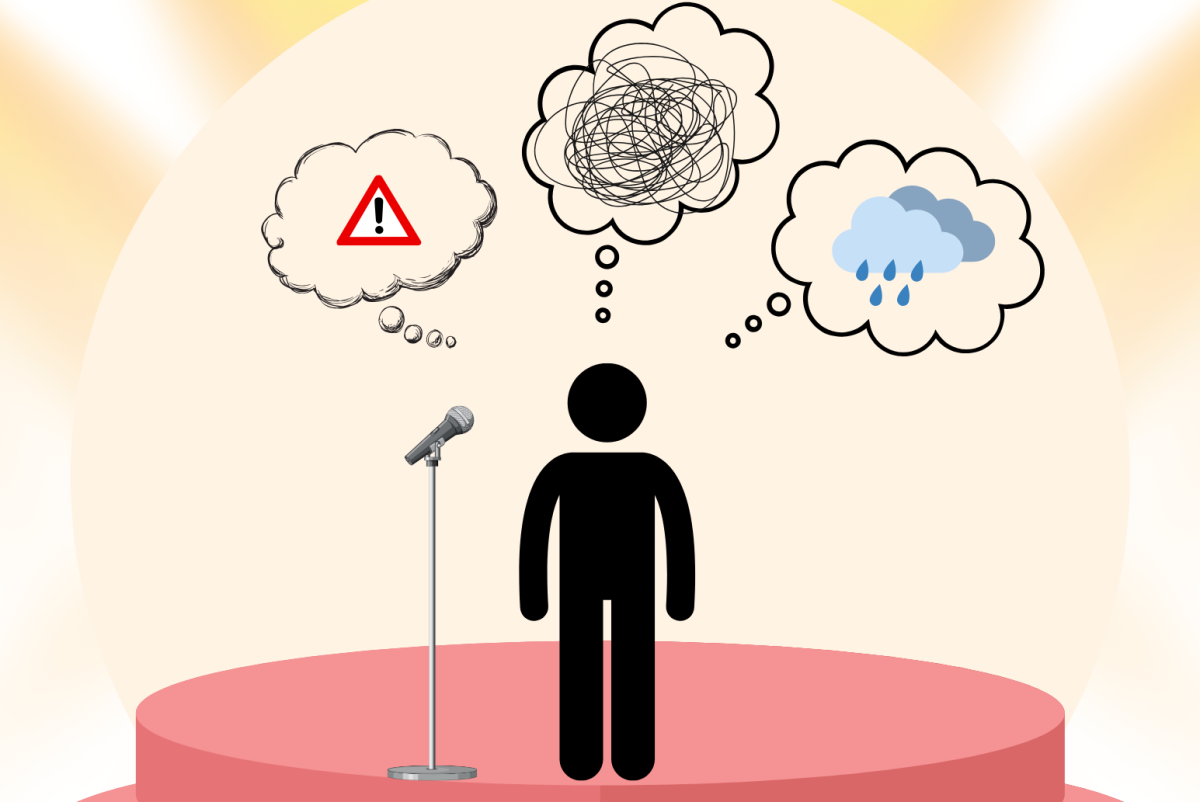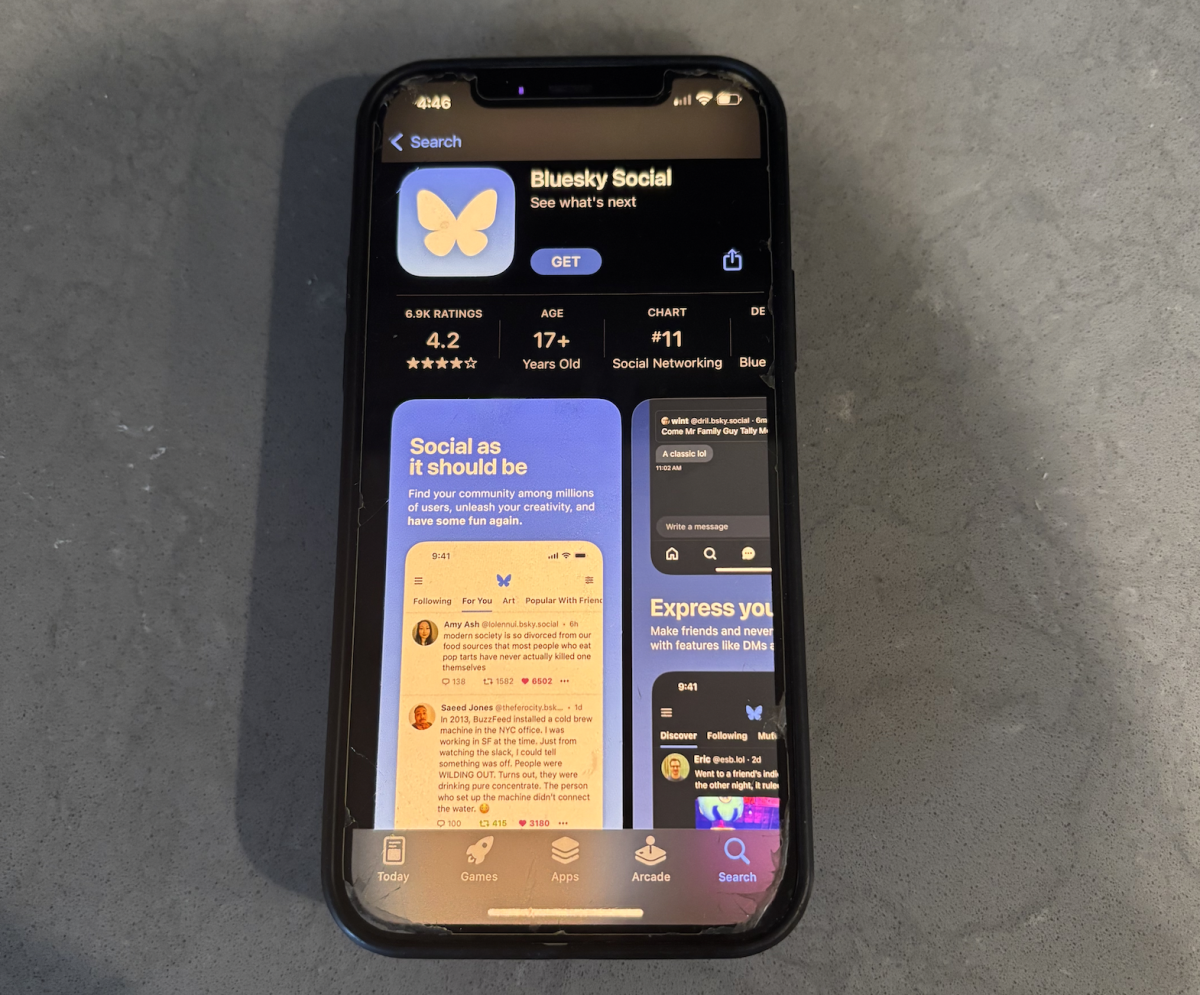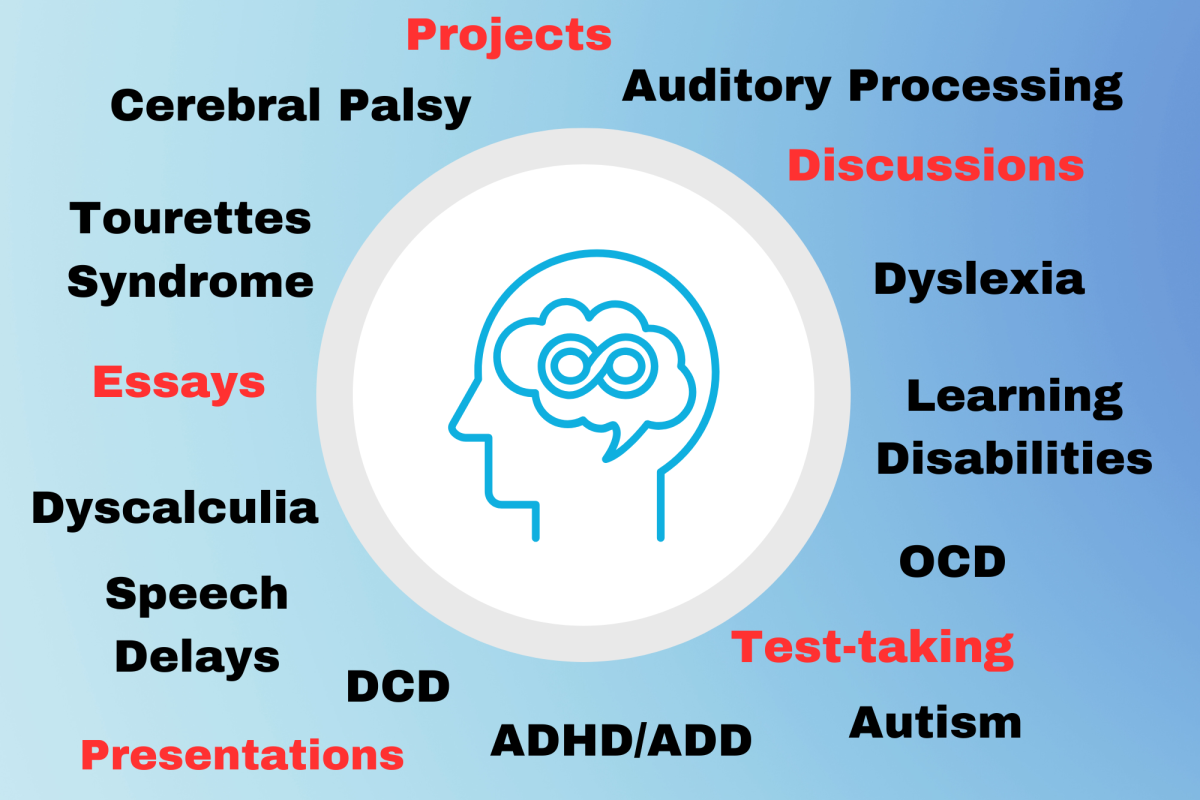How often is music your go-to tool when you need to focus?
While studying for tests, working on school projects or even writing these columns, I instinctively turn to my favorite Spotify playlists. Whether it’s a chill mix, rap or pop, it always seems to help me get my work done. It got me thinking — what about music makes it feel like a productivity hack?
It turns out there’s actual science behind how music affects brain focus. According to an article from Trala, an online music school, music can significantly enhance our ability to concentrate, depending on the kind of music and how it interacts with the task at hand. Music can create an optimal mental state for productivity by reducing distractions, improving mood and helping us stay motivated to complete tasks.
One way songs help with concentration is by masking background noise. Let’s be honest — working in a noisy environment can be a nightmare. A solid playlist can act as a buffer, drowning out disruptive sounds such as people talking or cars honking outside. This steady background music gives our brains something consistent to focus on, making it easier to avoid being distracted by every little noise.
Music can boost mood, which directly impacts our ability to focus. When listening to music we enjoy, our brain releases dopamine — a neurotransmitter associated with pleasure and reward. When we’re in a good mood, we’re more likely to tackle challenging tasks with enthusiasm and focus. Think about it: Have you ever struggled to start an assignment, only to put on a good playlist, and suddenly find yourself motivated to dive in? That’s dopamine at work.
Music can also help us get into a “flow state,” where we are fully immersed in a task. This is particularly true for repetitive or monotonous work. For example, if you’re organizing files, cleaning your room or even trudging through Delta Math problems, a steady rhythm can keep you in a cycle of engagement and make the task feel less tedious. The beat of the music gives your brain a sense of pace and rhythm, helping you stay focused and avoid daydreaming.
I’ve experienced this firsthand, for example, when I brainstorm ideas for columns. I tend to turn to my favorite artists with a calmer vibe because it helps me stay focused on writing without pulling my attention away. On the other hand, when I am doing something more repetitive like math problems or finishing my Chemistry lab, I turn to more upbeat songs to help me stay productive and focused.
Another fascinating finding is how music can help with memory retention. Some studies suggest that certain types of music, especially classical, can improve recall. This means that listening to music while studying might not only help you stay focused but also help you remember the material later, as shown in this article by Florida National University, which states, “Music activates both the left and right brain at the same time, and the activation of both hemispheres can maximize learning and improve memory.”
Of course, music isn’t a magic solution for everyone. Some people find even the softest melodies distracting, and that’s perfectly valid. Concentration is personal, and what works for one person might not work for another. The key is experimenting to find your sweet spot — whether with classical music, Frank Ocean (my personal favorite) or your favorite pop songs.
As I reflect on my relationship with music and focus, I’ve realized how much it’s become an essential part of my routine. It’s not just background noise; it’s a brain-trained tool that helps me set the tone for productivity. The next time you’re struggling to focus, consider reaching for your headphones. Whether tackling a challenging English essay or just trying to get through your to-do list, the right music might be the little boost you need to tune out distractions and tune into your work.
After all, if something as simple as a playlist can help us unlock our best focus, why not take full advantage of it?
















